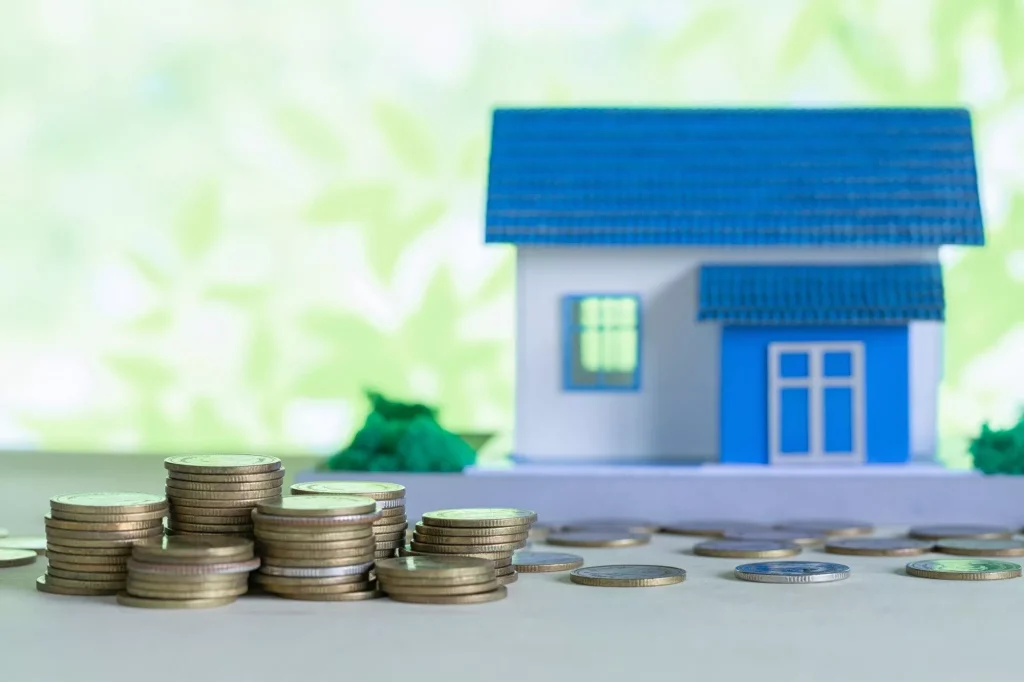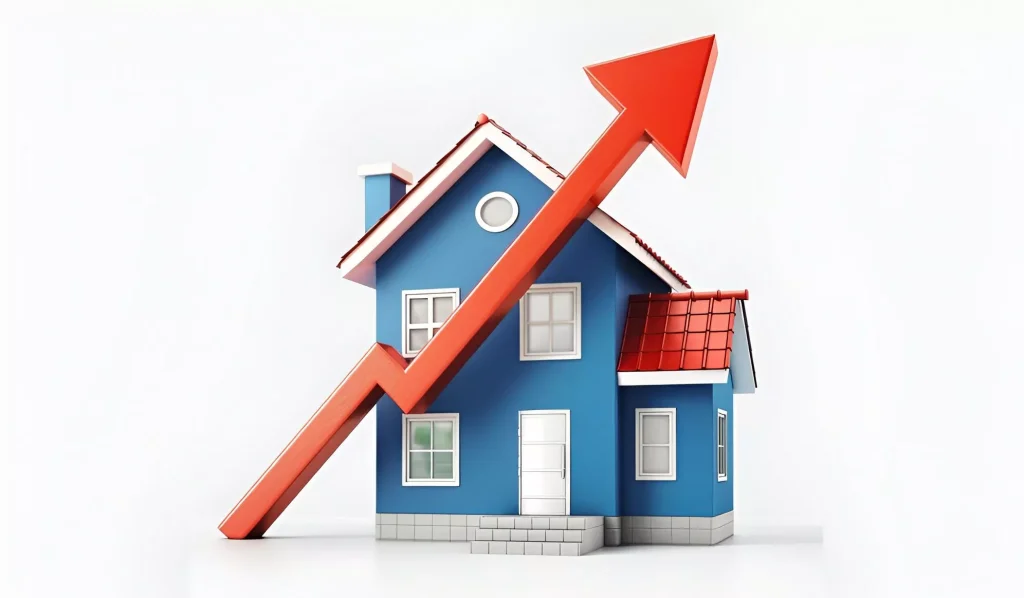When it comes to choosing a home loan, one important decision is whether to go for fixed vs variable rates. Fixed home loan rates stay the same throughout the loan term, giving you peace of mind with predictable payments. On the other hand, variable rates can change over time, which means your payments may go up or down. Understanding these options is key to making the best choice for your financial situation.
In this blog, we will explore the differences between fixed and variable rates. We will discuss the benefits and drawbacks of each type of loan to help you decide which is better for you. Whether you prefer the stability of fixed home loan rates or the potential savings of variable rates, we aim to provide clear information to guide your decision.
What Are Fixed Rates?
Fixed rates are interest rates that stay the same for a set period of time. This means that if you borrow money, like for a loan or a mortgage, your payments will not change. For example, if you have a fixed-rate mortgage for 30 years, your monthly payment will be the same every month for those 30 years. This can make budgeting easier because you know exactly how much you need to pay each month.
When deciding between fixed vs variable rates, many people choose fixed rates for the security they offer. They prefer knowing their payments will not change, even if interest rates in the market rise.
Fixed rates are often used for long-term loans, such as home loans or car loans. They provide stability and peace of mind for borrowers. Knowing that your interest rate is locked in can help you plan your finances better. Overall, fixed rates are a popular choice for those who want to avoid surprises in their monthly payments.
Pros and Cons of Fixed Rates Home Loans

Fixed rates home loans are a popular choice for many homeowners. One of the main advantages of a fixed rate is that your monthly payments will stay the same for the entire loan term. This can make budgeting easier and help you plan your finances better. Another benefit is that you are protected from interest rate rises, which can happen with variable rate loans. This gives you peace of mind and security.
However, fixed rates home loans also have some downsides. If interest rates go down during your loan term, you won’t be able to take advantage of the lower rates. Your payments will stay the same, even if the market rates are lower. Another potential drawback is that fixed rate loans often have higher interest rates than variable rate loans. This means you may end up paying more interest over the life of the loan.
What Are Variable Rates?
Variable rates are interest rates that can change over time. They are often used in loans and credit products, such as mortgages and credit cards. Unlike fixed rates, which stay the same for the entire loan period, variable rates can go up or down based on market conditions. This means that your monthly payments can also change, making it important to understand how they work.
When comparing fixed vs variable rates, many people choose variable rates because they hope to benefit from lower initial costs. If interest rates in the market go down, your payments could decrease, which is a great advantage. However, if rates rise, you could end up paying much more than you expected. It’s essential to weigh the pros and cons of fixed vs variable rates before making a decision, as this choice can impact your finances for years to come.
Pros and Cons of Variable Rates Home Loans

Variable rates home loans can be a good choice for some people. One pro is that you may pay less interest if the rates go down. This can save you money each month. Another pro is that you can pay off your loan faster if you have extra money. This is because there are no penalties for paying more than the minimum amount.
One con of variable rates home loans is that your monthly payments can go up if the rates go up. This can make it harder to budget and pay your bills. Another con is that it can be harder to plan for the future because you don’t know how much your payments will be in the future. This can make it hard to save money or make other financial plans.
The Difference Between Fixed Rates and Variable Rates
When you borrow money for a home, you can choose between fixed vs variable rates. Fixed rates mean that the interest rate stays the same for the entire loan period. This is great because you know exactly how much you will pay each month. Fixed home loan rates are often chosen by people who want stability and predictability in their payments. If you take out a fixed-rate loan, you won’t be surprised by changes in your monthly costs.
On the other hand, variable home loan rates can change over time. These rates are usually linked to an index that moves up and down. This means that your monthly payments can go up or down based on market conditions. Some people like variable rates because they can start lower than fixed rates. If interest rates drop, your payments may also decrease. However, this can also mean that your payments might increase if rates go up.
Choosing between fixed vs variable rates depends on your financial situation. Fixed home loan rates provide peace of mind, especially for long-term planning. You won’t have to worry about sudden increases in your payments. On the other hand, variable home loan rates can offer lower initial payments, which might save you money in the short term. However, there is a risk that your payments could become higher later on.
Fixed Vs Variable Rates Home Loans: Which is Better?

When it comes to home loans, there are two main types of interest rates: fixed and variable. Fixed home loan rates stay the same for a set period, usually 1 to 5 years. Variable home loan rates can change at any time, based on the market.
Fixed home loan rates are a good choice if you want to know exactly how much your repayments will be each month. This can make it easier to budget. However, if interest rates go down, you won’t benefit from the lower rates until your fixed term ends.
Variable interest rates home loans can go up or down at any time. If rates go down, your repayments will be lower. But if rates go up, your repayments will be higher. This can make it harder to budget. Variable home loan rates are often lower than fixed rates to start with.
Many people choose a “split” home loan, where part of the loan is fixed and part is variable. This gives you the benefits of both. You can also refinance to a different type of home loan when your fixed term ends.
A Professional Mortgage Broker Can Help You Choose Between Fixed Vs Variable Rates

When it comes to choosing between fixed vs variable home loan rates, it’s important to work with a professional mortgage broker. A good broker can help you understand the pros and cons of each option and make the best decision for your unique financial situation.
At Freshwater Financial Services, we are the best mortgage brokers to help you decide between fixed and variable home rates. We have years of experience in the industry and a deep understanding of the market. We’ll take the time to get to know you and your goals, and then provide personalised recommendations based on your needs.
One of the key benefits of working with a broker is that we have access to a wide range of lenders and loan products. We’re not tied to any one lender, so we can shop around to find the best fixed or variable home loan rates for you. We’ll also handle all the paperwork and negotiations on your behalf, making the process as smooth and stress-free as possible.
Another important reason to work with a broker is that the decision between fixed vs variable rates is not always straightforward. There are many factors to consider, such as your budget, risk tolerance, and plans for the future. A professional broker can help you weigh these factors and make an informed decision that aligns with your goals.
Conclusion
In the debate of fixed vs variable home loan rates, the choice really depends on your personal situation. Fixed home loan rates offer stability and predictability, making them a good choice for those who prefer to know their payments each month. On the other hand, variable rates can provide lower initial costs and the potential for savings if interest rates go down. Understanding your financial goals and comfort with risk is key to making the right decision.
Ultimately, there is no one-size-fits-all answer. Some people may find that fixed home loan rates suit their needs better, while others may benefit from the flexibility of variable rates. It’s important to weigh the benefits and drawbacks of each option carefully. By doing so, you can choose the loan that best fits your lifestyle and financial goals.
FAQs
Fixed interest rate loans have a set rate that does not change during the loan term, providing stability in payments. In contrast, a variable interest rate may fluctuate based on the cash rate set by the Reserve Bank, which means your payments can rise or fall over time.
When home loan interest rates rise, the amount of interest you pay on a variable rate loan may increase as well. This can lead to higher monthly payments, making it important to consider your financial situation when choosing between fixed or variable rate loans.
Yes, going with a fixed interest rate can be a smart choice during rising interest rates. A fixed rate term locks in your rate, protecting you from future interest increases and ensuring your payments remain stable throughout the fixed period.
At the end of the fixed term, your loan may switch to a variable interest rate, or you may have the option to refinance into another fixed interest rate or a split rate. It’s important to review your options to ensure you choose the best path for your financial needs.
Yes, you can switch from a variable interest rate to a fixed interest rate loan, but this may involve fees. It’s wise to consult with your lender to understand the terms and any potential costs associated with making this change.
A split rate loan combines both fixed and variable interest rates. This means part of your loan will have a fixed interest rate, providing stability, while the other part will have a variable interest rate, allowing you to benefit if interest rates fall.
Fixed interest rate loans typically offer predictable payments, while variable and fixed interest rates can lead to fluctuating costs. If interest rates fall, a variable loan may become cheaper, but if rates rise, your payments could increase significantly.
When deciding between fixed versus variable interest rates, consider your financial stability, how long you plan to stay in your home, and your risk tolerance. If you prefer predictability and are concerned about rising interest rates, a fixed interest rate loan might be best for you.
Get in touch if you need a construction loan.
Hit the button below to arrange a conversation with one of my loan specialists to find a deal that’s best for your situation.
We partner with over 50 lenders so you can find the perfect solution

Share on: